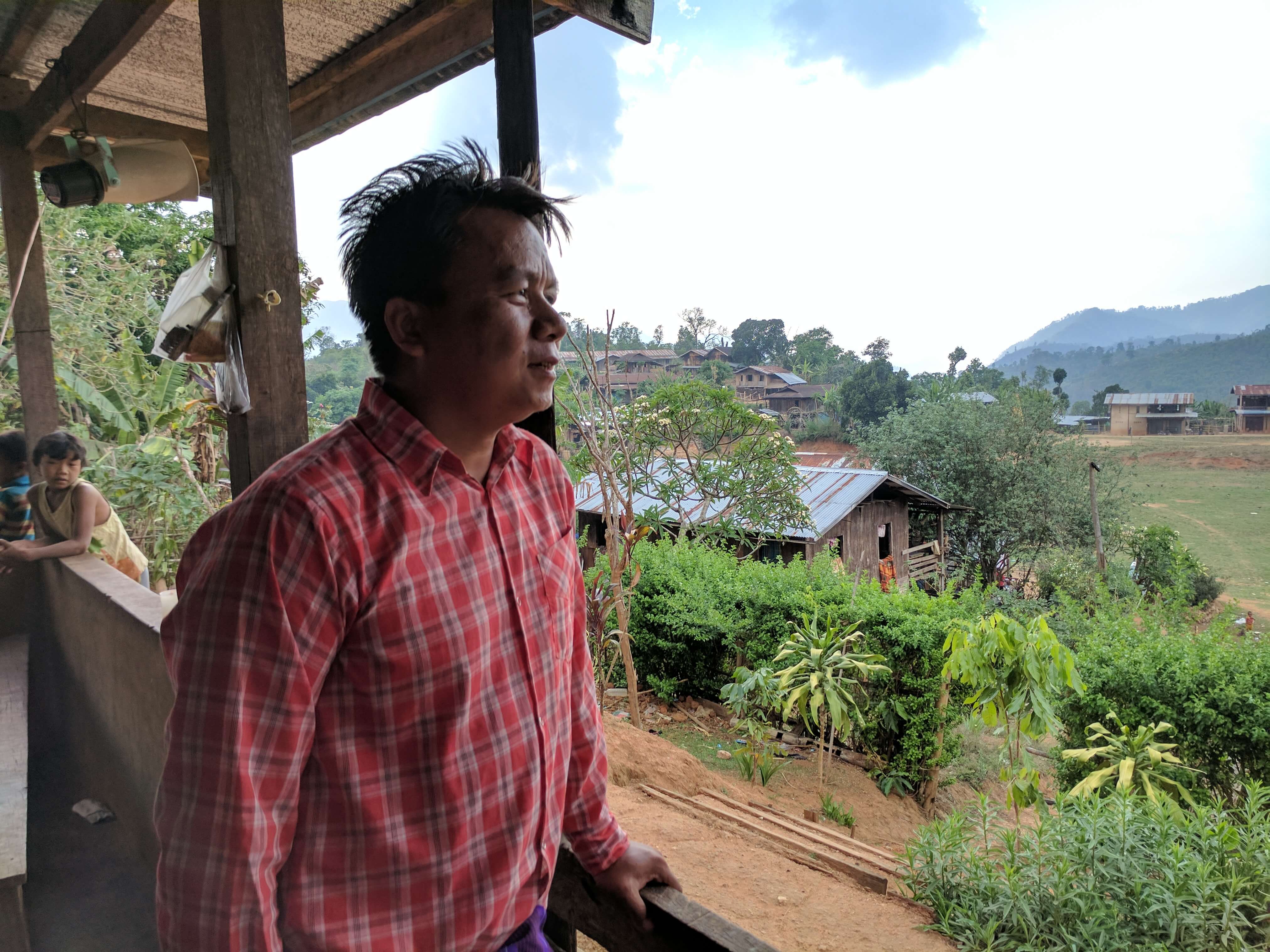Crisis Anticipation Officer Sarah Klassen hears how a DEPP project in Myanmar is meeting a Grand Bargain commitment: investing in local communities so they can prepare for disaster, by developing early warning and risk analysis systems.
Visitors to Han Phyu village, in the southern part of Shan state in Myanmar, are welcomed with locally brewed rice wine, served in a communal clay-pot with a straw to sip it through. “We don’t get many visitors from outside,” says Soe Min Aung – perhaps reflecting the fact that villages in this area are partly controlled by an ethnic armed group, the Kayan New Land Party.
A dozen villagers sit in a circle in a traditional Burmese home - made of thatch, woven grass and bamboo, and raised above the ground. “A measles epidemic happened a few years back. It killed over 30 villagers,” Soe Min Aung says solemnly. “We didn’t have health information or access to western medicine… so the villagers suffered.”
The pace of change in some parts of Myanmar has dramatically heightened since national elections were held in November 2010, marking the return to civilian government after decades of military rule. In Yangon, Myanmar’s biggest city and commercial capital, there’s a sense of expectancy and excitement. Han Phyu village got mobile phone signal coverage for the first time just a few weeks ago.
The growing impact of the outside world is also felt in the country’s vulnerability to climate change. Myanmar’s climate is projected to shift dramatically in the coming decades. In every region, temperatures are expected to rise by the middle of the 21st century, by 1.3°C–2.7°C. Communities in Myanmar will face an increasing number of extreme events in the near future, yet they have little access to crisis information and there are few local planning mechanisms for preparedness and response.
A project led by Christian Aid to strengthen emergency preparedness systems in Myanmar began in September 2015. It is one of 13 projects coordinated by Start Network under the Disaster and Emergencies Preparedness Programme (DEPP).
This is in keeping with World Humanitarian Summit commitments to invest more in disaster preparedness such as early warning, risk analysis and capacity strengthening, including that of national actors. In particular there was a commitment to do so by reinforcing, rather than replacing, existing national or local systems.
The project aims to strengthen the links among national, subnational and local level preparedness in Myanmar. It enables community members to access forecast and early warning information, improving their capacity to use this information for crisis response. It focuses on 50 villages in southeastern Myanmar, in Shan and Kayin states – including in Han Phyu Village.
“In the first stages of the project, we received training,” Soe Min Aung explains. “We learned about identifying hazards and we learned about early warning response. We did village mapping and hazard mapping - and we mapped out who were the most vulnerable people, such as the elderly, the disabled and those that have no access to information. Then we formed village groups.” Soe Min Aung now chairs the village’s newly formed Disaster Management Committee.
Christian Aid delivers the project through close collaboration with international, national and local NGOs. These include Dan Church Aid, Karen Baptist Convention, DEAR Myanmar, Department of Meteorology and Hydrology (DMH), and the Regional Integrated Multi-Hazard Early Warning System for Africa and Asia (RIMES). RIMES evolved in the aftermath of the 2004 Indian Ocean tsunami, to establish regional early warning and preparedness systems. “RIMES will help community members to translate the forecasts,” says Susu Myint, the RIMES Project Officer involved. “When I graduated, I wanted to be a monk. But this is better!” she adds, with a smile.
Soe Min Aung leads a procession of village members and project staff up a small hill behind the meeting house to see the newly installed VHF radio and loudspeaker system that will be the key to getting early warnings to this remote village. It will give village members up-to-date weather information and news, as well as providing a mechanism to communicate with the neighbouring villages and towns in the event of a disaster.
In the first stage of the project, Soe Min Aung along with other villagers attended training on how to interpret and weather forecasts and apply them. That will help him understand the nuances involved in the weather forecasts that he’s receiving.
Han Phyu village faces a wide range of natural hazards, including strong winds, fires, drought, flooding and landslides. The project allows village members to access crisis information and supports local groups to mobilise in teams dedicated to first aid, search and rescue and village coordination when disaster strikes. Previously, if villagers had weather information, they could only share it by going door to door, meaning critical information could be missed or poorly delivered.
“We need to get information at the right time,” Soe Min Aung says. “Now, as we develop this, our village will have enough time to prepare, and to prevent loss and damages in the community. This is my dream.”
Read more about the Disasters & Emergencies Preparedness Programme
Read about how the Start Network is meeting its Grand Bargain Commitments

